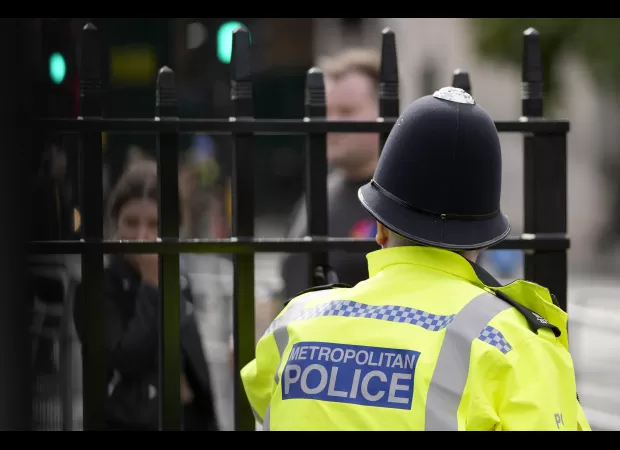Report finds Met Police does a poor job at investigating crimes.
I am worried about the current methods of crime investigation being used by the force.

According to recent inspections, the Metropolitan Police force has been found lacking in several key areas of policing. It seems that the Met is not performing up to par, as stated by the inspectors. In fact, an information pack given to potential police officers highlights the Met's responsibility to maintain peace and the legal accountability for their use of policing powers.
Unfortunately, the Met did not receive any outstanding or good grades across the eight key areas of policing evaluated by His Majesty's Inspectorate of Constabulary and Fire & Rescue Services. In the report published today by Chief Inspector Lee Freeman, it was revealed that the Met fell short of basic standards in seven areas. The crime investigation and offender management received the lowest rating of "inadequate."
In terms of preventing crime, responding to the public, protecting vulnerable individuals, creating a positive workplace, and leadership and force management, the Met was found to require improvement. The only area where the Met received an "adequate" rating was in the use of police powers and how they treat the public, which was deemed fair and effective by the inspectorate responsible for overseeing emergency services.
The inspectorate noted some progress in the Met's response time to public calls, with the majority of 999 and 101 calls being answered quickly. However, they also discovered significant issues in the quality of investigations and care for victims, especially in cases assigned to local teams. It was recommended that the force improves the supervision and quality of their investigations to ensure better outcomes for victims. The management of offenders and suspects was also a cause for concern, with inconsistencies and delays observed.
London has historically struggled with higher crime rates compared to other cities in Britain. As of June, the capital has an overall crime rate of 88 crimes per 1,000 people, according to the tracking website CrimeRate. The inspectors found that the Met has an inexperienced workforce, including rank-and-file officers and their supervisors, who are struggling to manage their workload beyond their training and knowledge.
On a positive note, the Met is more trusted compared to other police forces, according to data from the Office for National Statistics (ONS). However, the inspectorate noted that the police service's culture may discourage officers and staff from speaking out about poor behavior. This echoes a previous independent report that described the Met as a "boy's club." Other concerning findings included almost one in five visits to sex offenders being overdue.
Despite ongoing efforts to reform the Met in the wake of declining public support and scandals, as part of their two-year plan "A New Met for London," change is slow. Additionally, the Met is facing a funding gap of £92 million this year, resulting in scaling back their reform plans.
Chief Inspector Freeman acknowledged the Met's progress in answering public calls quickly but expressed serious concerns about their current approach to investigating crime and managing offenders and suspects. He also recognized the Met's efforts to improve outcomes for victims but noted that more work needs to be done to ensure consistent improvements across the entire force.
This inspector's report is just the latest in a series of challenges the troubled Met Police has faced. Last year, a report described one of the world's oldest police forces as institutionally sexist, misogynistic, racist, and homophobic. This report was commissioned after the murder of Sarah Everard by a Met police officer in 2021. It came on the heels of the Independent Office for Police Conduct making over a dozen recommendations for reforming the department.
As a result, the Met was put under special measures, called "Engage," in 2022. Trust in the Met has also dwindled over time, with a BBC poll showing that 42% of Londoners "strongly" or "somewhat" distrust the force. In response to the inspectorate's report, the Met Police issued a statement emphasizing their commitment to using every available resource to deliver more trust, less crime, and high standards for London. They also noted that data from the ONS shows that confidence in the Met is above other major cities, and overall crime in London is lower.
The Met acknowledged the need for continued reform and stated that they have already agreed upon a plan to move forward from the enhanced monitoring by the HMICFRS. They also stated that they are reflecting on the findings and working closely with the inspectorate, the Mayor's Office for Policing and Crime, and other partners to improve delivery for Londoners.






